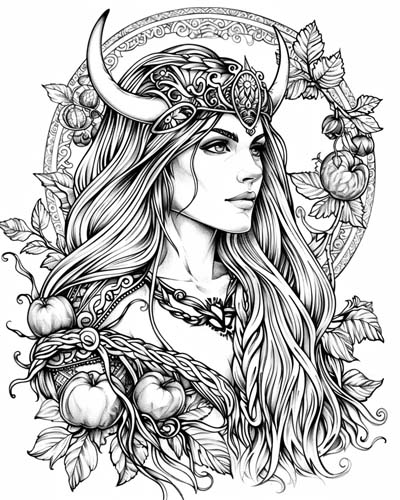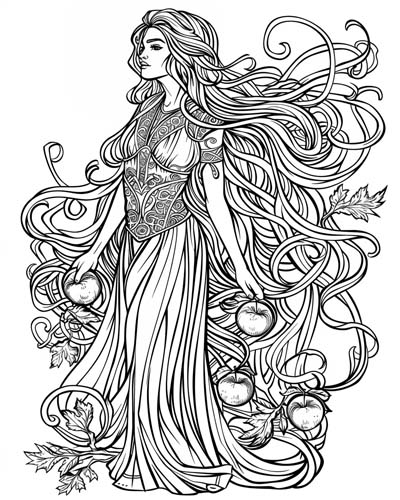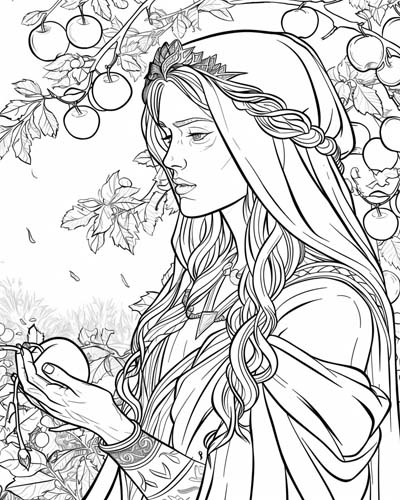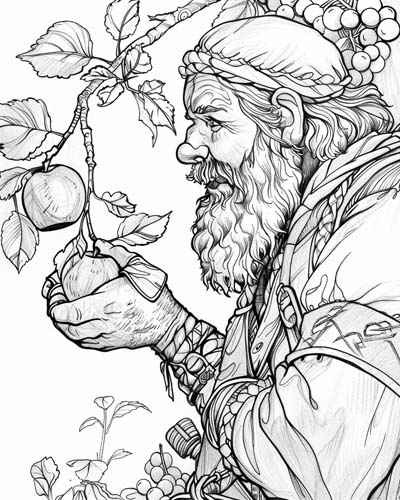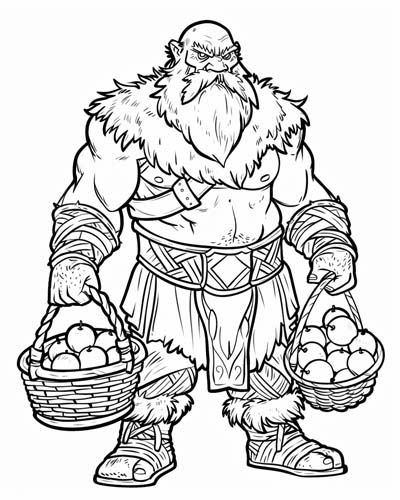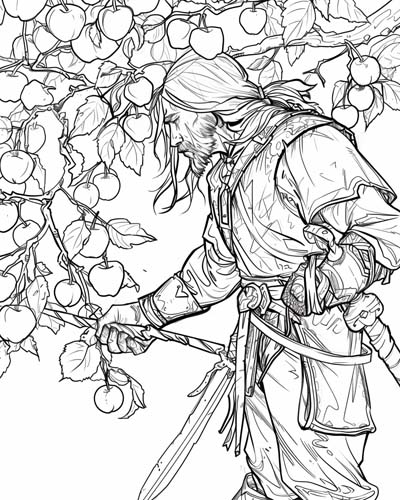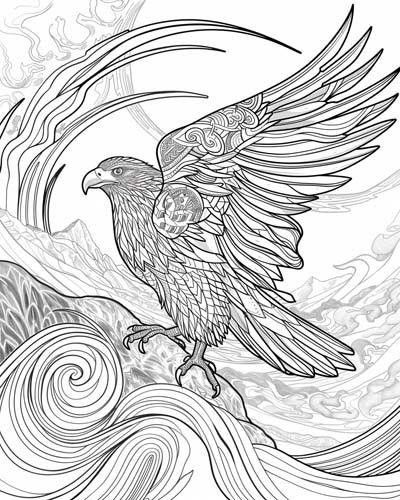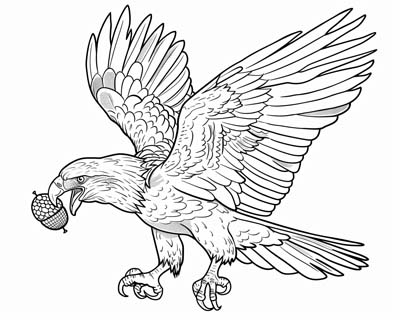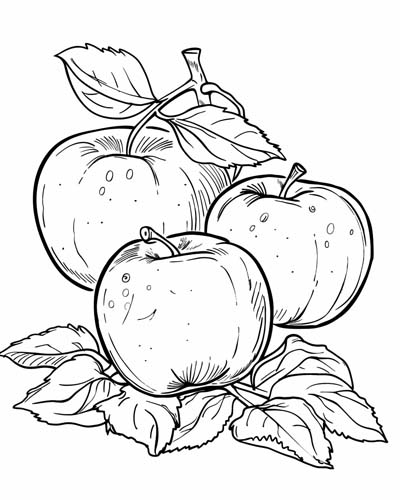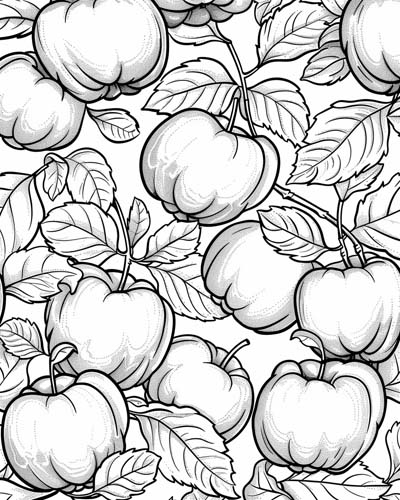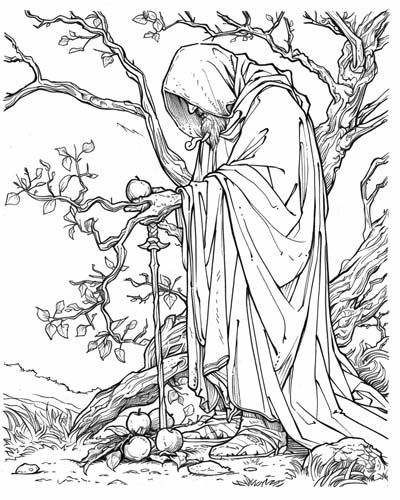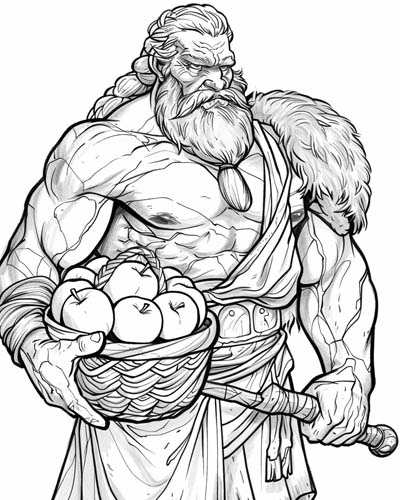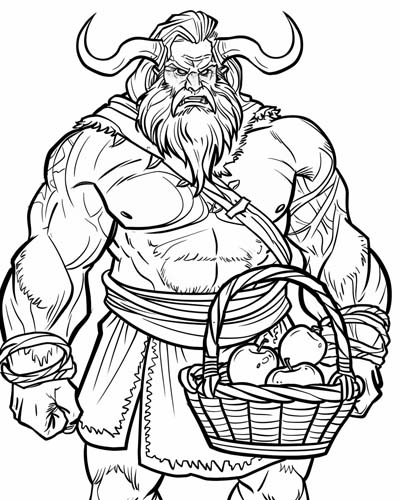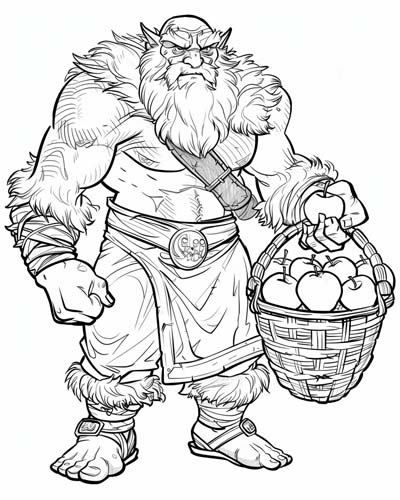Coloring Pages for Kids
Idun Coloring Pages
Welcome to our coloring pages section featuring the Norse goddess Idun.
Idun, the keeper of youth in Norse mythology, is a figure shrouded in the gentle allure of eternal spring. As the guardian of the magical apples that grant the gods their everlasting youth, Idun is often depicted amidst lush, verdant scenery, symbolizing renewal and vitality. Her presence is serene, often accompanied by the vibrant blooms and the fertile earth that embody her role in the pantheon. With flowing robes and a basket of golden apples, Idun brings the promise of rejuvenation and the sustaining power of nature. Her portrayal is a blend of the ethereal and the earthly, capturing the essence of nurturing and the timeless beauty inherent in the cycle of life and renewal.
In Norse mythology, Idun is the goddess of youth and the keeper of magical apples that grant immortality to the gods. Her story intertwines with a dramatic tale of deception and rescue involving the giant Thjazi.
Idun is married to Bragi, the god of poetry, and is highly cherished by all the gods for her apples, which keep them young and vigorous.
One day, Loki, the trickster god, finds himself in trouble with Thjazi, a powerful and cunning giant. Thjazi coerces Loki into helping him kidnap Idun from Asgard (the realm of the gods) by promising to spare Loki's life in exchange for her apples.
Thjazi was a formidable giant in Norse mythology, known for his great strength and cunning. He resided in Thrymheim, a stronghold in the mountains, which he inherited from his father, the giant Olvaldi.
Thjazi’s desire for the apples of immortality held by Idun, the Norse goddess of youth, was driven by his longing to possess the same rejuvenating qualities that the gods enjoyed. The apples were a symbol of eternal youth and health, and possessing them would not only grant him immortality but also significant leverage over the gods of Asgard.
Loki, known for his shifting loyalties, agrees to Thjazi's terms. He tricks Idun by telling her he has found apples even more magical than hers in the forest. Curious and unsuspecting, Idun follows Loki, only to be seized by Thjazi, who transforms into a mighty eagle and flies away with her to his realm, Thrymheim.
With Idun gone, the gods begin to age rapidly, their immortality fading without her apples. Realizing the severity of the situation and the role he played in it, Loki faces the wrath of the gods. They threaten him with severe punishment unless he rescues Idun. Desperate, Loki borrows a magical cloak from the goddess Freya that turns him into an eagle.
Loki flies to Thrymheim, finds Idun alone, and quickly transforms her into a nut to carry her safely back to Asgard. Thjazi, upon discovering the escape, transforms into an eagle once again and pursues them furiously.
The gods, seeing Loki and Idun approaching, light fires on the walls of Asgard. As Loki swoops in with Idun, Thjazi follows but is caught by the flames, causing him to fall within the walls of Asgard, where he is killed by the gods.
Idun is safely returned to Asgard, her apples restored to the gods, who regain their youth and vitality. Loki, having redeemed himself through this daring rescue, escapes punishment for his role in the ordeal, though not without gaining further mistrust from his divine peers. This tale underscores themes of betrayal, redemption, and the perpetual quest for rejuvenation that are common in Norse mythology.
